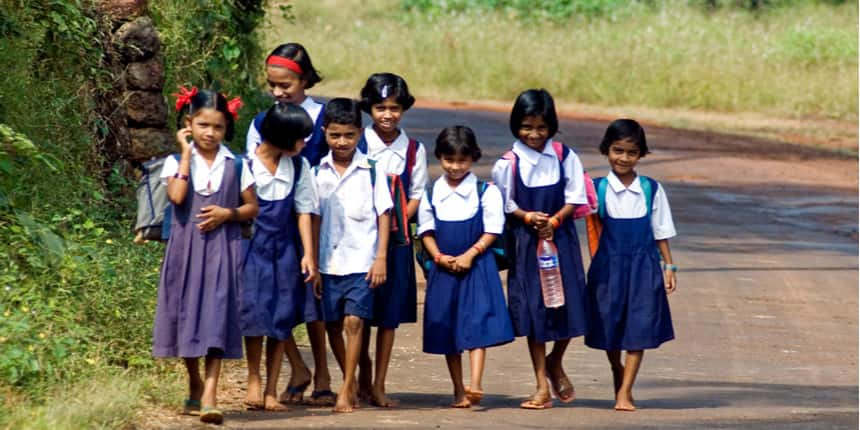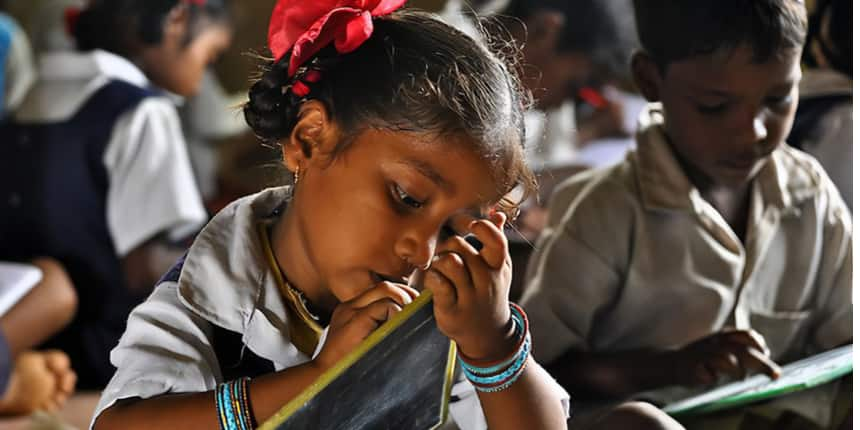COVID-19: Funds, tests, school clustering in education ministry’s ‘learning recovery plan’
R. Radhika | February 4, 2022 | 01:19 PM IST | 5 mins read
Ministry of education has written to states to implement the plan to address the learning deficit caused by school closures during the pandemic
CBSE 12 Class Free Mock Test
Boost your exam preparation with our CBSE 12 Class Free Mock Test, designed as per the latest exam pattern.
Attempt Now
NEW DELHI: An annual calendar of activities, financial support to students, funds for primary school teachers and an oral reading fluency test, are some of the ways the Centre intends to salvage the school education system, disrupted by the COVID-19 pandemic.
CBSE Class 12th 2026 QP's: Physical Education | Physics | Accountancy: Set 1 | Set 2 | Set 3
CBSE Class 12th 2026 Answer Key: Physics | Accountancy
CBSE Class 12: Free Mock Test | Formula Sheet: Maths | Physics | Chemistry
CBSE Class 12 (All Subjects): PYQ's | Question Bank | Practice Questions | Sample Papers
The ministry of education wrote to states and union territories to implement a “learning recovery plan” mitigating the impact of a pandemic on school level education. The centre has directed the states to include remedial interventions like financial support to every student, training for teachers to use tablets, strengthening ICT facilities, weekly timetable of learning outcomes to be achieved.
The government’s “COVID action plan” also includes a survey to identify out of school children and integrate them back into the school system. States and union territories have been asked to track each child and prepare a child registry at the school level by July and August.
The states and UTs have been asked to incorporate the LRP guidelines while preparing their Annual Work Plan and Budget and in their respective project approval board (PAB) proposals that will be submitted to the education ministry for final approval.
Nirmala Sitharaman, in her budget speech 2022 had acknowledged the gross academic disruption due to school closures has led to loss of school education for almost two years of school children, especially in rural India. The finance minister had further talked about the need to provide supplementary teachers in schools.
Also Read| ‘The kind of funding we get is dismal, affects research’: IIT Hyderabad director
Learning enhancement programme
This programme consists of areas like classroom-based interventions and remedial teaching, provision of educational resources like worksheets or workbooks, age-appropriate storybooks, supplementary materials and individualised learning interventions for continuing the learning process for all children including children with special needs.
The Centre has directed states to prepare grade-wise material and ensure their delivery to the students. All children must be provided with this package at the beginning of the academic session of 2022-23.
The government has further suggested “twinning or clustering” with local Kendriya Vidyalaya, Jawahar, Navodaya Vidyalaya or any other private school to pool resources. The schools can meet once a month to discuss pedagogy, the teaching of disabled students, etc.
The National Council of Research and Training, or NCERT conducted the National Achievement Survey on November 12, 2021 for Classes 3, 5 and 8 to assess students’ learning abilities. The letter also asked states to prepare district-wise strategies for post-NAS interventions based on its results.
Funds for students, teachers
To address the need for continued learning, the ministry has asked the school to include financial support of Rs 500 for each student in their annual work plans. Since students between Class 1 and 5 are covered under the NIPUN Bharat mission, the plan has been extended to students of Class 6 to 10.
Child rights activists and the Right to Education Forum have repeatedly pointed out that the government’s spending has been “disappointing” to curb learning losses caused by the digital divide and the pandemic.
 NCERT will conduct an oral reading fluency for establishing minimum reading benchmarks in different Indian languages for children at Class 3 level
NCERT will conduct an oral reading fluency for establishing minimum reading benchmarks in different Indian languages for children at Class 3 level
Also Read| In Budget 2022, children receive lowest share of funds in over a decade: Report
The government has also extended incentives of Rs 10,000 per head for 25 lakh teachers in primary school. In addition, each teacher will be given a tablet to be able to continue teaching in online or hybrid mode. “To continue with the hybrid model of learning, the usage of tablets will enable teachers
to use the resources and content on various digital portals and show them to the students,” the letter said. The tablet will also be used to upload and monitor the various records, track the progress of each child and provide academic help to students when needed.
Moreover, the State Council of Research and Training, or SCERT are required to conduct a training need analysis of teachers in July.
Also Read| Union Budget 2022: Centre released only 38% of SSA budget till October, says study
Oral Reading Fluency Test
Away from schools, many students reportedly found themselves lagging behind in reading age-appropriate textbooks. The plan proposes to have an assessment in oral reading fluency for establishing minimum reading benchmarks in different Indian languages for children at Class 3 level and assessing performance against the same, so as to take remedial steps.
The Centre will conduct an oral reading and fluency test to ascertain the learning gap. Moreover, the ministry will spend Rs 20 lakh for each state and union territory. The NCERT will be responsible for conducting this test between March and April. These surveys can be done in offline mode, telephonic or online depending on the pandemic situation.
Also Read| NEET PG 2022 postponed by 6-8 weeks: Health Ministry
Information and communication technology
To increase the efficiency of teachers, the centre has further asked states to strengthen ICT facilities at the block and cluster level. “ ICT facilities at BRC [block resource centre] level will enable them to take up a substantial load of teacher capacity building with the help of face-to-face as well as online teaching-learning techniques, tools, content and resources aimed at improving the quality and efficiency of the teaching-learning process,” the official letter said. Financial support of Rs. 6.40 lakh non-recurring and Rs 2.40 lakh recurring costs including tablets will be provided for the ICT facility.
Monthly meetings to discuss academic issues and design strategies to improve students’ performance is also a part of the centre's recovery plan. The plan talks about a “pedagogical lesson planning” exercise to be conducted with teachers by the principal of the school, block-level or cluster level resource centres at least once a month. To support these meetings, financial support of Rs. 1000 for every cluster resource centre will be provided as mobility support for visits by CRCs to provide support during the COVID pandemic.
Follow us for the latest education news on colleges and universities, admission, courses, exams, research, education policies, study abroad and more..
To get in touch, write to us at news@careers360.com.